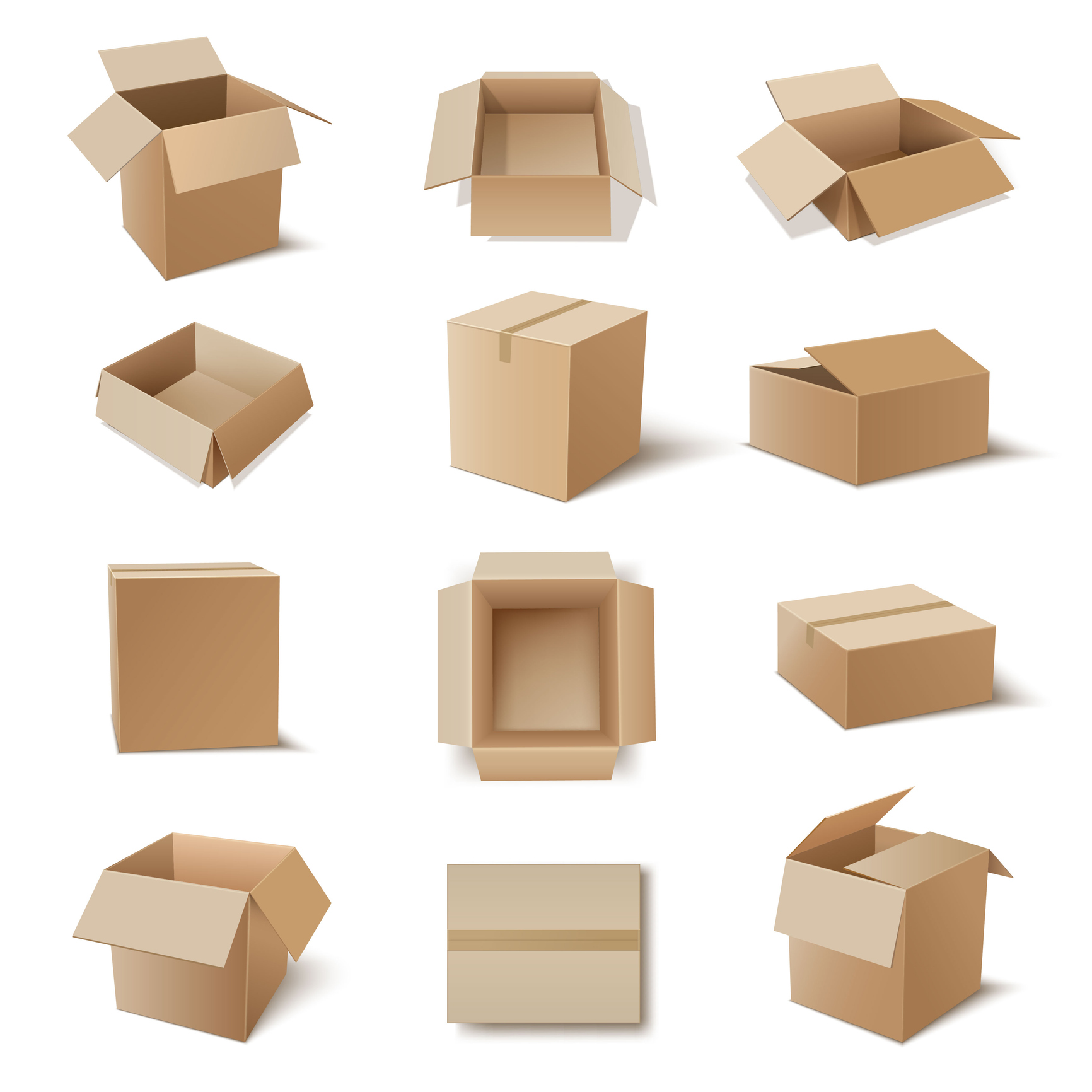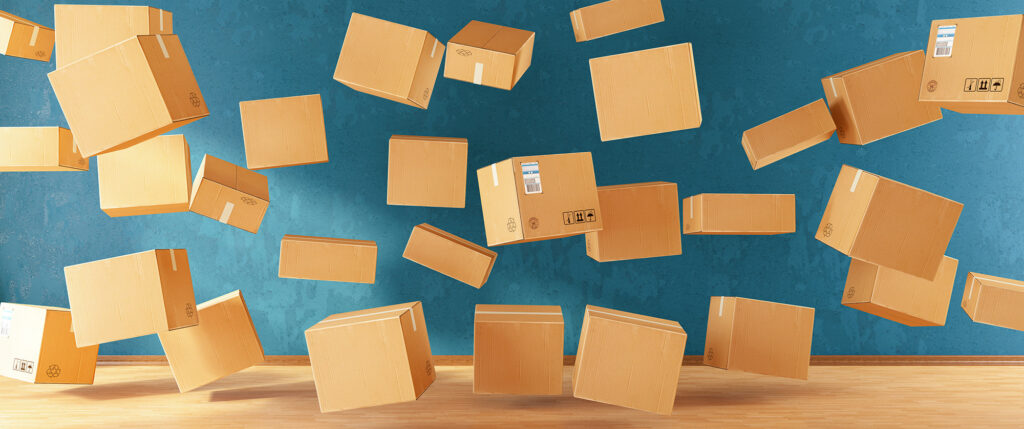June 19 is International Box Day. Cats love to hide in them. Kids enjoy making believe they’re forts, rocket ships, and cars. Adults use them to move and store our possessions. And, of course, businesses use them to efficiently and easily ship goods while protecting those items from the outside world.
No wonder the world celebrates the humble, effective, ubiquitous box one day a year. Let’s unpack—unbox?—just why boxes are so cool.
The boxes we know today are the product of a series of technical innovations.
Some attribute the creation of the box in 1817 to British industrialist Malcolm Thornhill or British firm M. Treverton & Son. These were simple paperboard boxes made of a single sheet of cardboard. That same year, the first documented reference to the cardboard box came when it was used for a German board game, “The Game of Besieging.”
At this point, items were shipped in wooden crates, barrels, or sacks.
A few decades passed, and then things began rapidly happening, box-wise:
- In 1856, Edward Allen and Edward Healey invented a corrugated liner to keep the shape of their tall hats.
- In 1871, Albert Jones of New York was awarded a patent for “Improvement in paper for packing” for wrapping bottles and glass lanterns.
- In 1874, Oliver Long improved on Jones’ design by “sandwiching” ridges or flutes to the corrugated paper, which made it sturdier.
- Also in 1874, G. Smyth built the first machine for producing large amounts of corrugated cardboard.

Mass-produced cardboard boxes are the result of a mistake.
Scottish-born Robert Gair owned a paper bag factory in Brooklyn. In 1879, one of Gair’s paper bag makers accidentally sliced through thousands of seed bags after a metal ruler used to crease the bags shifted. Instead of worrying about the ruined bags, Gair saw that he could cut and crease paperboard in one pass, thus increasing the speed of folding boxes and making their mass production affordable. By 1895, he was mass-producing corrugated cardboard boxes.
Boxes became indispensable in shipping goods by the turn of the century thanks to their durability, versatility, and affordability.
Today, corrugated boxes are used to ship everything from food items to delicate glassware to heavy machinery.
These boxes protect products from external factors like heat, cold, and moisture and save them from damage. They are also used for branding, marketing, and providing information about the products. Luxury boxes, with special colors, finishes, and designs, make “unboxing” a high-end product like a phone or jewelry memorable, like opening a present.
Corrugated boxes are extremely eco-friendly.
In 2022, the recycling rate of corrugated in the United States stood at 93.6 percent. Corrugated is far and away the most recycled packaging material.
So celebrate the humble box on International Box Day. Contact Premier to discuss your box needs and how we can make your packaging memorable. After all, your business—and the box—deserve it!

